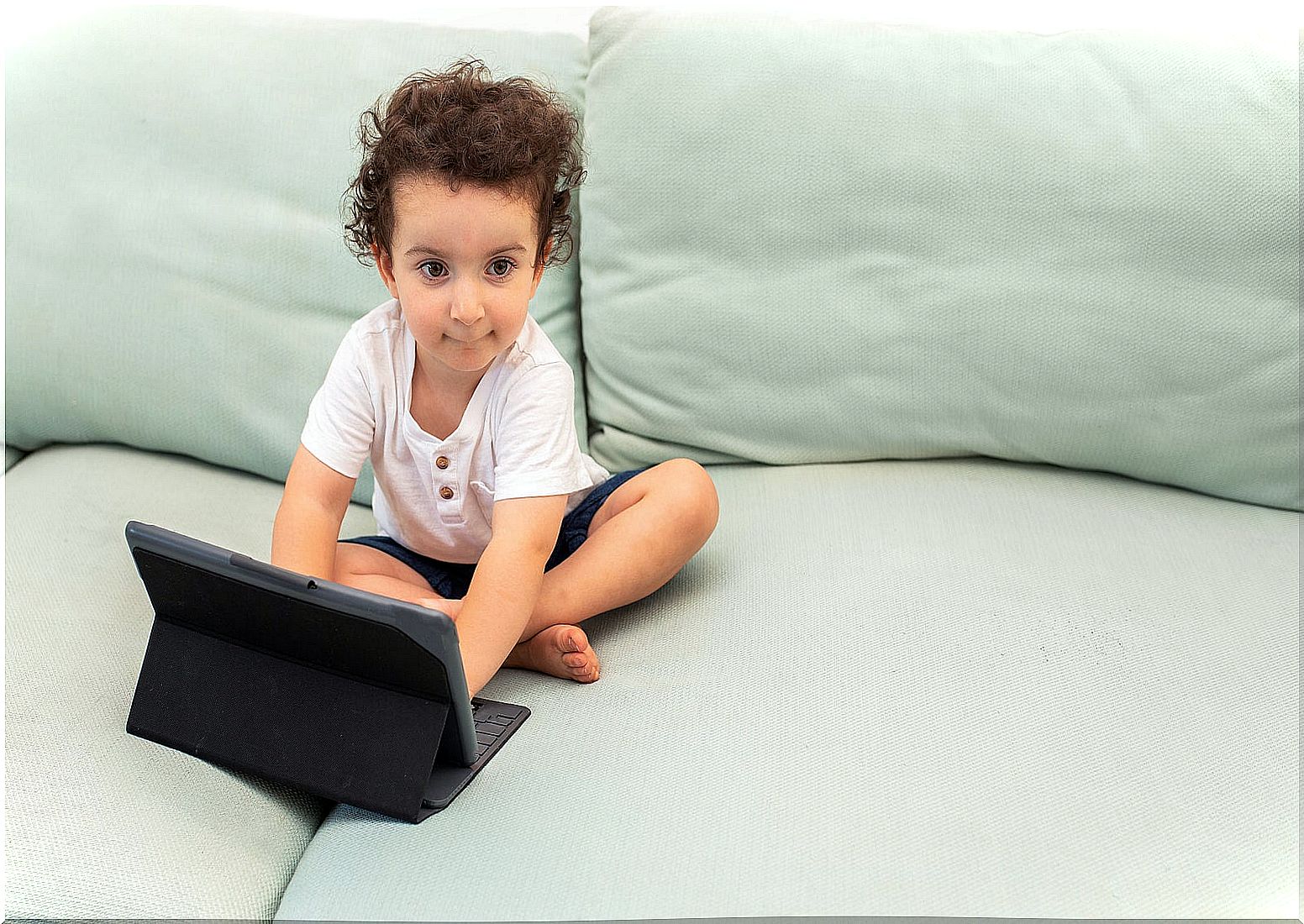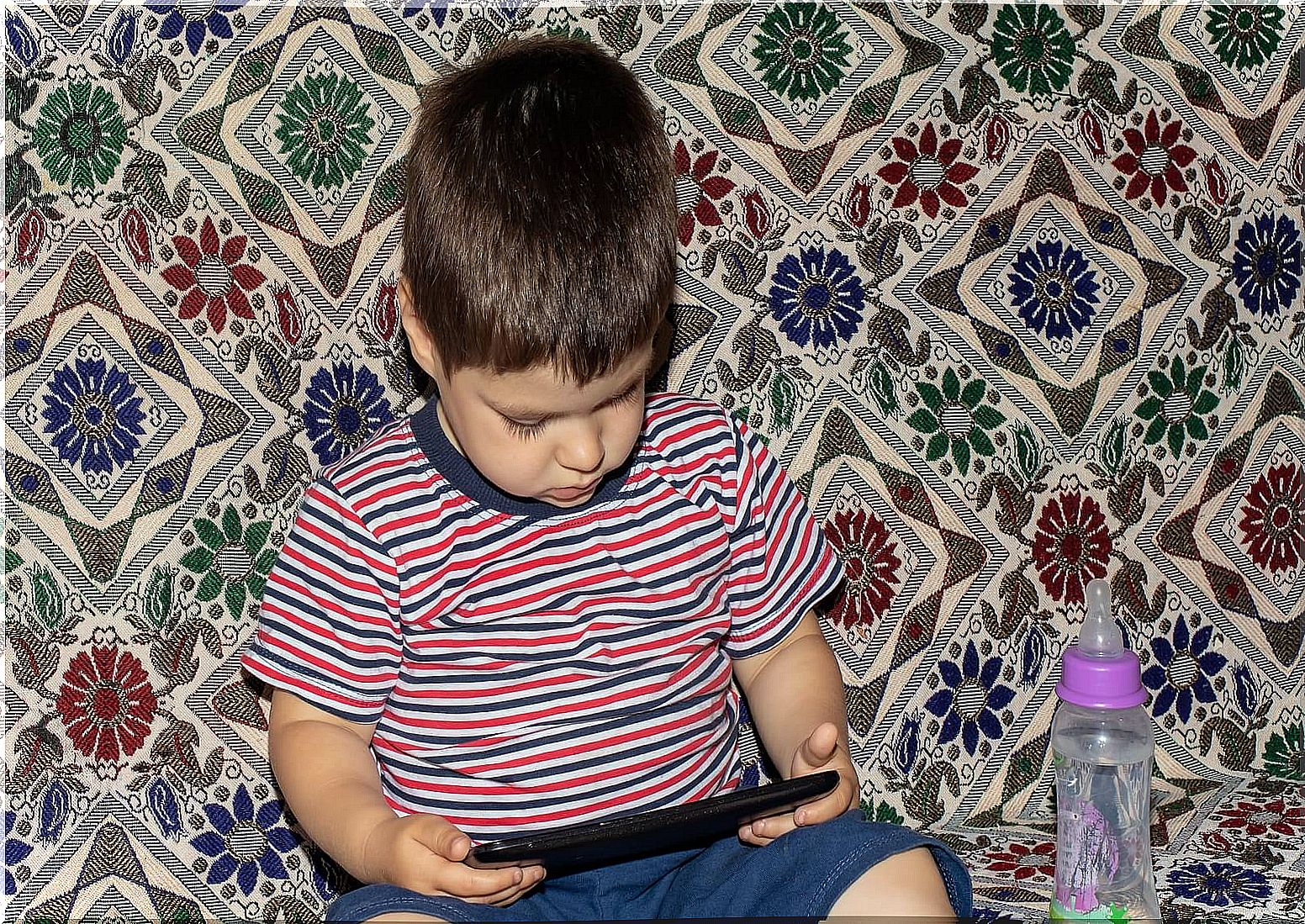How Do Screens Affect My Child’s Language?

It is increasingly common to find children “hooked” on the screens of different devices listening to songs, watching videos on the street, in the doctor’s office, in the park, etc. We have normalized this daily action and we are not going to be drastic , since screens can also favor some areas of the development of children, but what about the area of language? How do screens affect children’s language?
The reality is that its use, especially if it is excessive, can interfere with the development of your language and communication. But why? Stay reading and you will find out; In addition, we discuss some key ideas to reduce the time your little one spends exposed to screens. By reducing its use, the child will be able to promote not only his language, but also his creativity and his curiosity to explore beyond a screen.
How do screens affect your child’s language?
It is a reality: every day we see smaller and smaller children literally “hooked” to the screens of mobiles, tablets and other electronic devices. But to what extent is this beneficial for them? How can it harm them? How do screens affect language?

If you want to know the consequences of the use of screens in children’s language, especially at an early age, stay and keep reading.
They do not promote your communicative intention
The first point related to how screens affect language has to do with communicative intention. Through it, the child pursues a purpose, under which hides a desire to communicate, to express a message.
But what about the screens? That these do not stimulate, precisely, this intention, but quite the contrary, because they limit it. Why? Because with this type of device (screens) there is no social interaction or the need to use language to communicate.
Screens limit exploration of surroundings
On the other hand, the use of screens can limit the exploration of other areas of the child’s real environment. This is so because, having a device that can emit sounds, in which games, images, photos, videos, etc. appear, it is very difficult to look up from it and start investigating other areas, since mobile phones and tablets “get it all done.”
That is why, in this sense, they can limit the child’s effort to continue exploring, which would interfere with their language and communication.
They offer a stimulation that is difficult to match
In line with what we mentioned, the screens offer a very powerful stimulation and very difficult to match through other methods or materials. Children, when comparing one of these devices with more traditional games, such as a block game, see the former much more attractive.
In a certain way it is normal, since they are equipped with a multitude of functionalities that stimulate your senses and attract your attention (colors, music, lights …).
They do not require the use of language
Likewise, the use of screens (specifically, some games and videos), many times, implies that language is not required to give life to the characters, for example. That is, the child does not have to simulate the voice of the characters, as he would do with a doll, for example, because it already appears, “it is already given.”
Thus, we see how the screens affect the child’s language when playing and simulating realities, which has to do with creativity. On the other hand, through symbolic play and games that are further removed from the new technologies, this stimulation of language does occur.
What to do so that the screens do not affect the language of your child?
Should the screens be completely removed? Each family must choose the option that best suits their circumstances, logistics and day to day. Although it is true that experts recommend removing screens completely, especially in younger children (from early ages).
This is so because, as we have seen, its use can interfere with the normal development of language and communication. However, we find it interesting to leave you some key ideas that must be taken into account and that can be applied to progressively reduce the use of screens, which will facilitate the stimulation of the child’s language.
Progressively decrease its use
You don’t have to be radical if, due to X circumstances, you don’t want to completely eliminate screens from your child’s life. However, you can start by reducing their use, especially with children who spend many hours exposed to them.

Offer alternatives that motivate him
Beyond reducing the use of screens, you must offer your child alternatives that arouse his interest and that “replace”, in a certain way, the former. It is not that you simply want to change some things for others, but that you find other motivations beyond the screens. To connect with him, you can start by starting with what he likes and proposing different activities that attract his attention.
Spend time with him so that the screens do not affect your child’s language
The company of parents is one of the things that children value the most. So, choose to stay by his side while you discover together what else may interest him other than mobile phones and tablets …
On the other hand, you can also be by his side while he plays with the tablet to stimulate, even if it is little, the interaction, which allows to work and also promote the language.
There is a whole world to discover! And, through the eyes of a child, this process is even more exciting. What are you waiting for to put these tips into practice and give the best to your child during their development?










